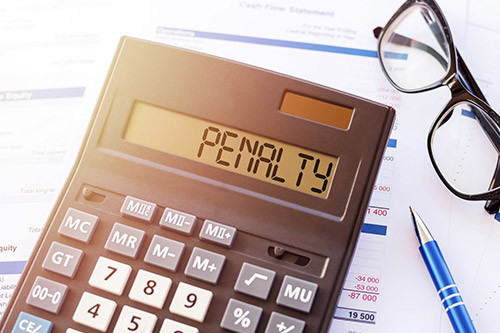Watch Out For The Penalty Assessment

As the SARS year end of 31 March approaches, SARS will focus on cash collections in all forms and manner in order to try and ensure that budget proposals as tabled are met.
The current state of the implementation of penalty assessments is but the start of the pre-March madness.
Provisional taxpayers are provided with extra time to lodge their annual tax returns due to the inherent complexity of their tax affairs. This privilege however is not afforded to all taxpayers and so the definition of a provisional taxpayer is under the spotlight.
The SARS generally accepted provisional tax returns and payments from taxpayers under this category over the years. However, the SARS system has introduced a process of review in order to establish the correctness of the classification of the taxpayers as provisional taxpayers.
The primary criteria focuses on identifying those taxpayers who did not lodge their returns before the end of December 2021 and who are using the extended period afforded to provisional taxpayers.
If the final determination is that the taxpayer did not meet the definition of a provisional taxpayer, then the penalty will remain, subject only to possible relief as a first-time offence.
If the taxpayer correctly met the definition of a provisional taxpayer and the penalty was incorrectly raised, the dispute process will reverse the penalty and the first-time relief card will not have been used in vain.
In any event, penalties will be imposed from 1 February 2022 every month for a period of 36 months if the return remains outstanding.
If a taxpayer persists with outstanding returns, SARS has the necessary powers to raise an estimated assessment and impose a penalty of up to 150% of the tax due and the taxpayer’s ability to object is suspended until the outstanding return has lodged.
Whilst SARS has not yet fully restored its ability to find those who evade tax on undisclosed income, the use of data analytics and third-party information has improved, thereby resulting in the SARS’s ability to automate the imposition of penalties where taxpayers have outstanding tax returns or where they have used an exemption for provisional taxpayers, but they fail to meet the necessary requirements of that definition.
All taxpayers would need to take note of this important penalty dispensation and do their utmost best to ensure that their tax affairs are up to date and that they properly assess whether they qualify as provisional taxpayers before utilising the extended period for submission of their tax return.
No information provided herein may in any way be construed as legal and/or tax advice. Professional advice should be sought with reference to specific background facts before any action is taken based on the information contained herein. We hereby disclaim any responsibility should any person act upon the contents of this publication without due consultation.
PKF South Africa Inc. is a member firm of the PKF International Limited family of legally independent firms and does not accept any responsibility or liability for the actions or inactions of any individual member or correspondent firm or firms.
